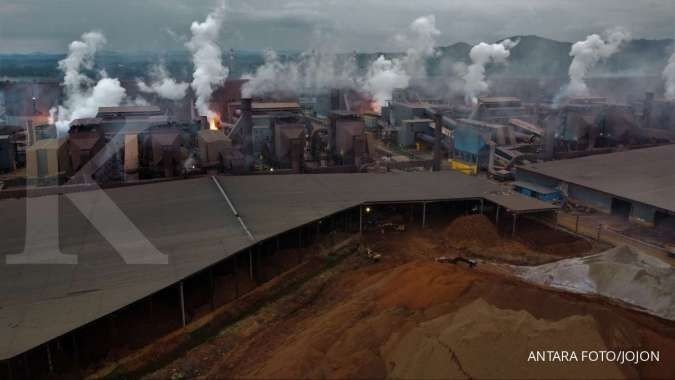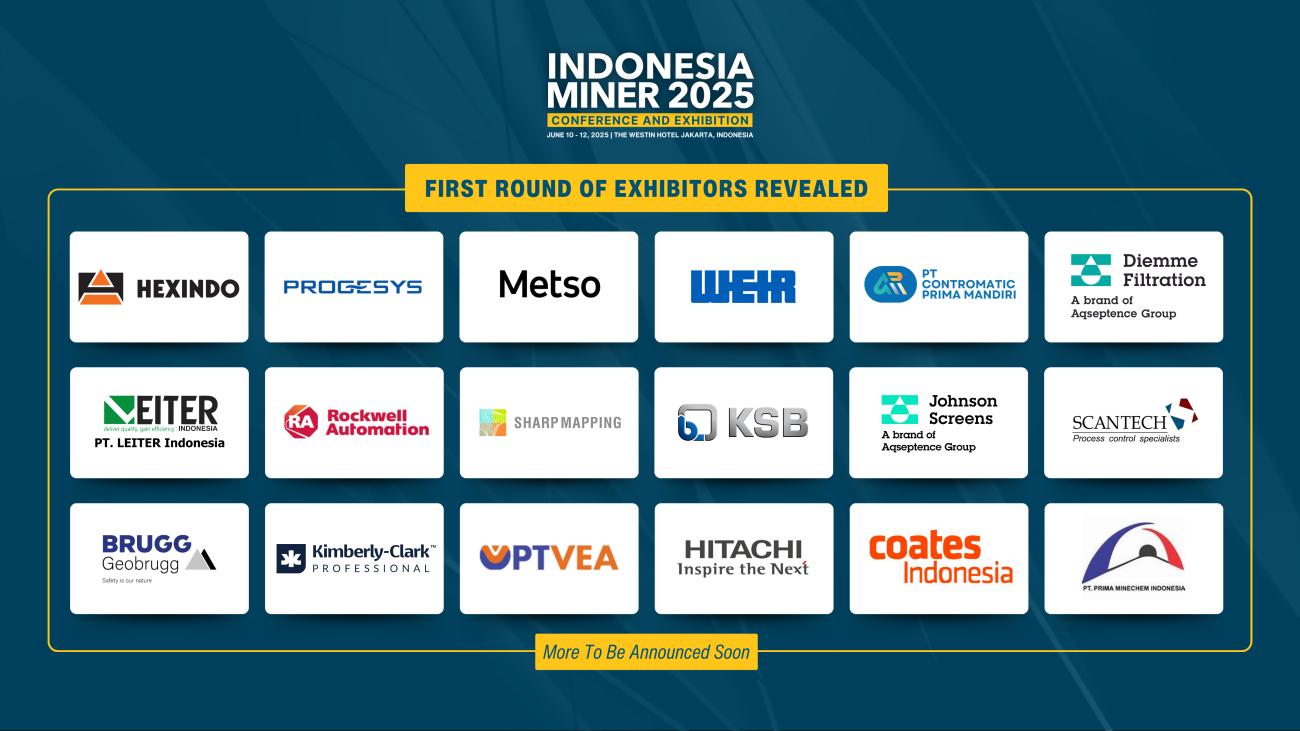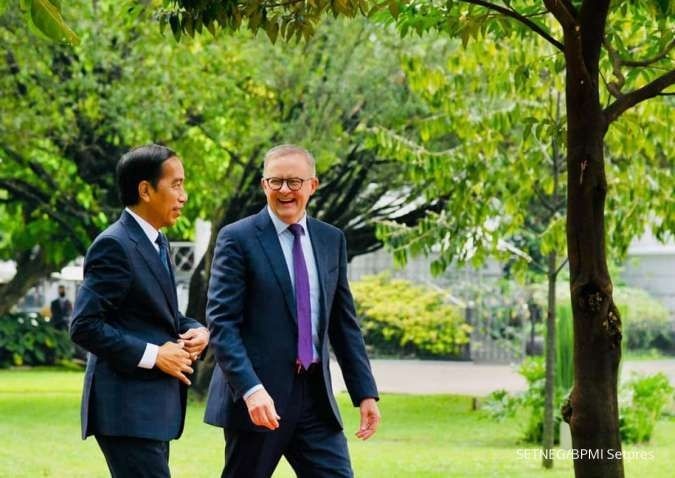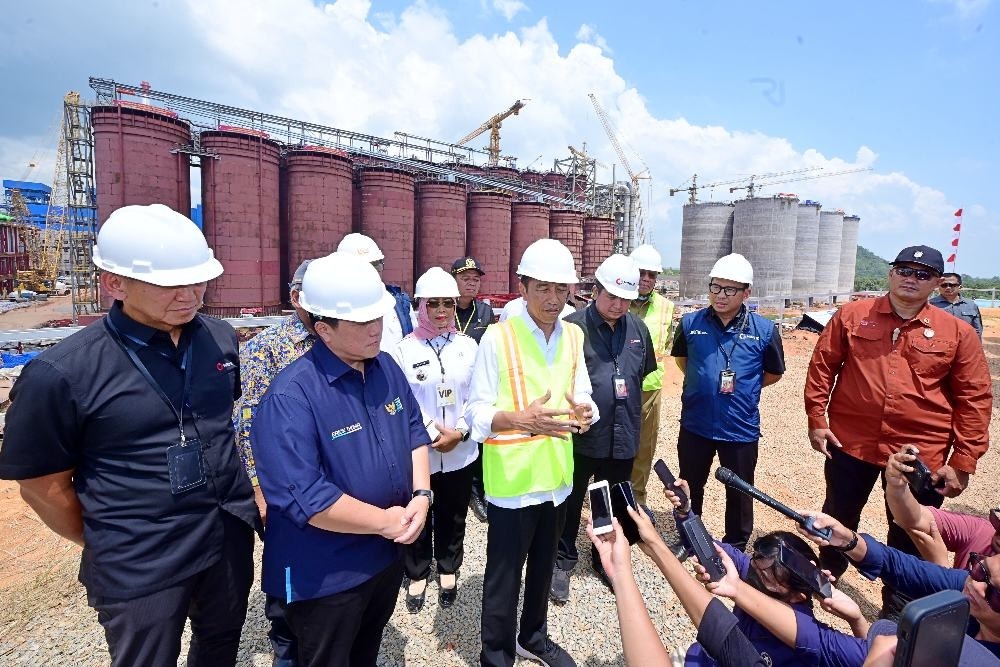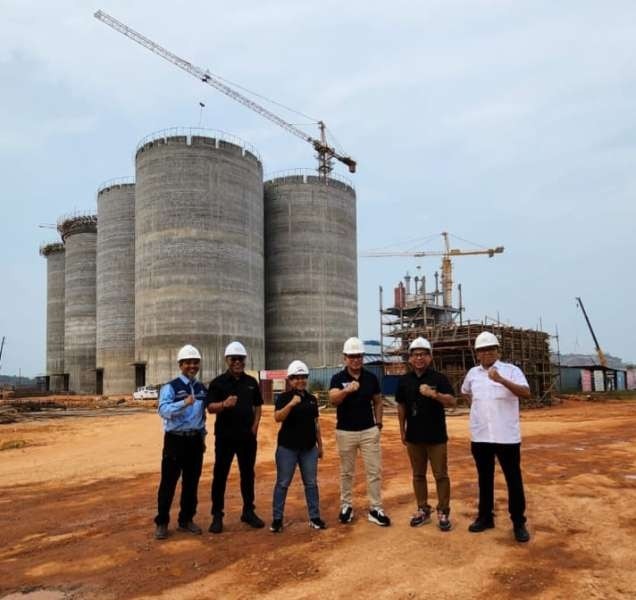Europe as a country known for its commitment to sustainable
aspects still contributes to financing nickel mining activities, including
financing for captive coal power plants.
Sustainable Development Policy Research and Program
Assistant at The Prakarsa, Ricko Nurmansyah explained, most of the financial
flows that occur in the nickel industry are loans, bonds, and equity.
The breakdown is loans 66.5%, bonds 5.4%, and equity 28.1%.
The financing in the nickel industry includes mines, smelters, to captive
coal-fired power plants.
Based on the results of tracing financial flows, financing
and investment in the upstream nickel sector is dominated by capital from China
which is widely invested in Sulawesi and Halmahera (North Maluku).
However, financial institutions from Europe also contributed
to finance these projects.
"We also mapped financial institutions from Europe that
contribute to financing nickel projects in Indonesia, namely HSBC, Santander,
ING Bank, and others," he said in a presentation of research results
witnessed virtually, Tuesday (9/1).
According to the data it collected, the largest
amount of financing to the nickel project was channeled by HSBC worth USD 1.09
billion in the form of a syndicated loan for the construction of a smelter, a
battery industrial area.
More specifically, the loan was given for the
construction of a battery factory in Karawang, West Java. Acquired the smelter
PT Debonair Nickel Indonesia which owns the RKEF smelter in IWIP with a power
plant capacity of 380 MW. And the loan obtained by PT Merdeka Tsinghan
Indonesia.
Ricko said, one thing that is highlighted in this finding is
how sustainable financial policies are working today.
"The European Bank already has a commitment to finance
sustainable projects, meaning they are free from human rights violations,
environmental impacts that reduce environmental benefits themselves," he
said.
Ricko said this drives urgency for financial institutions in
both China and Europe to review their green commitments for their involvement
in financing flows in the nickel industry.
In conclusion, The Prakarsa stated the importance of
promoting sustainable financial and business practices for companies in the
nickel industry to Financial Services Institutions (FSIs) involved in financing
flows.
This is shown by the hope that financial institutions and
nickel companies will be able to realize and improve equitable energy
transition practices in the nickel sector in Indonesia.
Image source: ANTARA FOTO/JOJON
